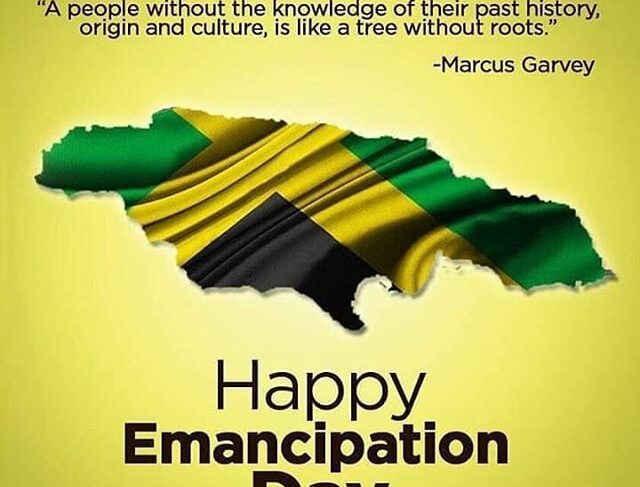
“In history as in human life, regret does not bring back a lost moment and a thousand years will not recover something lost in a single hour.”
- Stefan Zweig
It was my intention to revisit the origins of my Caribbean history before European imperialism and colonialism were in vogue, which entailed the enslavement of millions of African people. Surely, my ancestors had more going for them than just being mere commodities – as just being some white people’s property. Although I could appreciate the logic of beginning such a chronicle on how my forebears got to the Caribbean from the west coast of the African continent such a history, I thought, had deliberately or had inadvertently skewed and had corralled my past into the barracoons of the victorious African tribal leaders from tribal wars, into the images of shackled bodies led to the coast, into long boats which ferried them towards the tall masts of slave ships, on to the auction blocks in the Caribbean and in the Americas, and into the denigration of subservience and of brutality on the plantation, which were enforced by guns and by whips. That was a part of my history, without a doubt, but there had to be more and, there was, indeed, more. But, no matter how far back I started I knew that, coming forward from ancient history into the era of modernity would, inevitably, take me through the rocky roads to African tribal slavery and the Transatlantic slave trade. This was to shed light on another aspect of African slavery which I never anticipated.
I had Dr. Eric Williams’ book, Capitalism and Slavery, on my bookshelf, for many years, which, I must admit, and shamefully so, a seminal work which I had never read. I was made to understand that it was both controversial and necessary when it was first published, which sent shockwaves in the world of academia which was, at the time, dominated by European sentiments. But the mere mention of slavery within its title indicated that it did not begin as far back as I had wanted it to. I had read significant portions of Dr. Walter Rodney’s, How Europe Underdeveloped Africa, and toyed, briefly, with the idea of re-reading it. But then I decided not to do so for the same reason behind me having bypassed Dr. Williams’ book, at least for the moment. The book which started me off on my trek was a publication which I had purchased when I was a university student in Washington, d.c., which was titled, The World And Africa – An Inquiry Into The Part Which Africa Has Played In World History, by Dr. W.E. Burghardt Du Bois. It had laid unread for over forty years, and it opened my eyes. And yes, we had many noble things of which to boast, and I believe that was when I first came across the name, Herodotus, a Greek who is considered to be the father of the study of history.
Through the process of studying history, while I was a student in high school in Jamaica, and while being apart of the College of Liberal Arts at the university, doing a few history courses as electives, I was taught the value of sources, especially of primary sources and of how the end products of historical research gained legitimacy and respect from scholars with such references appearing in ones bibliography. And so, when Dr. Du Bois referenced Herodotus (484-425 BC) with respect to what he as an ancient Greek had recorded from his first hand experiences in Africa – expressing admiration as a white European for what he had seen and what he had experienced – one has to question the so-called Anglo-American scholars who, from their so-called historical research, have and continue to assert that we had no history to speak of on the African continent prior to when the Europeans came to, allegedly, deliver us from the barbarity of our tribalism in order for us to experience their white civilization. But, one has to wonder why such a well respected source has been omitted when it comes on to African history, and about the omission of such primary sources which came from first hand testimony which was provided by such Arab scholars of old like Ibn Battuta (1304-1368/1369) a traveler, and Ibn Khaldun (1332-1406), a philosopher and a historian. There was much to be proud of as a Black man, but I obtained more troubling details about the international slave trade of African people.
From my reading of Dr. Du Bois, and of his Senegalese contemporary, in the person of historian and anthropologist, Dr. Cheik Anta Diop, in his book, The African Origin of Civilization – Myth Or Reality, and from other readings, I learned much about various African kingdoms and empires which had spanned thousands of years. I became aware of their rise and of their fall. Key examples included the following, Ancient Egypt (c. 3100 BCE – 30 BCE), the Kingdom of Kush (c. 1070 BCE – 664 BCE), the Ghana Empire (c. 300 CE – 1240 CE), the Mali Empire (c. 1240 CE – 1645 CE), and the Songhai Empire (c. 1460 CE – 1591 CE). But, as I had stated before, no matter how far back in time I had travelled to then turn around to head back into the realm of modernity I encountered the enslavement of my people. Like our European counterparts, African peoples had also exploited those who looked like them, mostly those who had been taken captive in war. And that is a story for another time and is very much worth reading. But, I was staggered at the fact that an international slave trade was taking place on the east coast of Africa long before the Transatlantic slave trade occurred on the west coast.
For over a thousand years my people were caught, they were bartered, and they were sold by Arabs and transported into different parts of the world. Who knew about a Black slave uprising, for example, which took place in Iraq long before the European powers came to the fore? Before the Pope and the Vatican had sanctified the enslavement of Africans, the Muslim Caliphs, after the death of Muhammad, had sanctioned the enslavement of non-Muslims, more for political than for religious reasons. Although this included the enslavement of whites and of other races, Africans were, more often than not, the primary targets. And although the indelible stain of “the color line” which existed in North America did not exist in the Arab world, seeing Blacks as ever inferior, Africans were made eunuchs, concubines, and field workers, in the Arab world, and also soldiers and commanders of armies, and statesmen and other high ranking officials. But, be that as it was, with no concerns of miscegenation – slavery, even at the hands of the brown and not the white man, was still slavery. The transatlantic slave trade, also known as the Atlantic slave trade, spanned roughly from the 16th to the 19th centuries – about 400 years. The Arab slave trade, also known as the Trans-Saharan slave trade or Eastern slave trade, spanned over 1,300 years, making it the longest in history. It involved the forced removal of millions of Africans from their homeland for enslavement in the Arab world and beyond. This trade route existed from antiquity until the mid-20th century, with its peak volume around 1850.
After finishing the last book which I had read on African history as it had unfurled on the continent, with every intention to move on to the next book on my shelf dealing with that subject, I had decided to take a brief detour to learn more about the Arabs and about how they had ended up in Africa and of the tremendous political and cultural legacies which they had left behind. I soon found out that I would not have been able to fully appreciate the impact that they had made – both positive and negative – without having come to some understanding of the religion of Islam itself which was conceived, incubated and birthed on the Arabian peninsula. Why did so many Africans convert to Islam – many having done so without coercion? Was the Qu’ran of the Arab imperialists and colonizers used in similar fashion to that of the Christian Bible of the Europeans who came long afterwards, and who were, for a time, like backwoods men to the Arab peoples? Why was the Arabic language cherished by so many? The book, Islam – A Short History, written by a well-known British writer, who is well respected by Muslims, Karen Armstrong, proved to be an invaluable resource. And I am now in the throes of reading a few pages which are left in the last chapters of another monumental work titled, A History Of The Arab Peoples, written by a British professor by the name of Albert Hourani.
During my readings, the philosophy and the opinions of the Honorable Marcus Garvey would sometimes come to mind.
His “Back to Africa” philosophy was encapsulated in his vision of a united and of an independent Africa, where people of African descent could build a strong, and a self-governing nation. Noble ideals which once warmed my heart and, to some extent, which still do. A key quotation which expressed this sentiment was: “God and Nature first made us what we are, and then out of our own creative genius we make ourselves what we want to be. Follow always that great law. Let the sky and God be our limit, and Eternity our measurement.” That quotation emphasized self-determination and the power of the African mind to shape their destiny. As I had stated earlier, I still believe that. I would still like to see that happen. But, I no longer include myself as being a part of that vision as a person who is the product of the Caribbean, with all of its flaws. I want a Pan-Caribbean plan.
I have read enough to appreciate my African roots, and to cheer in the wings for my brothers and my sisters on the continent as they develop and as they try to find their own place in this world after the scars that were left by foreign invaders and after the rape of their resources – dark skinned humans being the most important of all. But, unlike the Honorable Marcus Mosiah Garvey, I have no desire to return to Africa on a permanent basis. Many of my ancestors were complicit with the Arabians and with the Europeans. Some African leaders begged the British to continue the slave trade when they banned it. Although the idea of “Black consciousness” was alien to them as was the modern concepts of “Black solidarity” and of “Pan Africanism” – some scholars wondered if they would have sold us to the white man if they knew of the horrors of chattel slavery in the New World. I have no doubt that many on the continent would welcome me with open arms. However, I also know that others would not. I could never be African enough for them no matter what I did. They all, for the most part, bent the knees and had fate take me to Jamaica. And so, there is where my heart is – Jamaica. That is who I am – Jamaican. Internal slavery or international slavery, Black, Arab or European – slavery is still slavery. Again, no sir, and no ma’am – no return to Africa. I am and will always be – Jamaican. The following words written by the much esteemed, late, great Dr. Louise Bennett-Coverley sum up my thoughts perfectly:
Back to Africa, Miss Mattie?
You no know wha you dah seh?
You haf fe come from somewhe fus
Before you go back deh!
Me know say dat you great great great
Granma was African
But Mattie, doan you great great great
Granpa was Englishman?
Den you great granmader fader
By you fader side was Jew?
An you granpa by you mader side
Was Frenchie parlez-vous?
But de balance a you family,
You whole generation,
Oonoo all barn dung a Bun Grung
Oonoo all is Jamaican!



